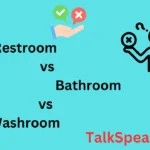Homophones can be tricky. They sound the same but have different meanings and spellings. “One” and “won” are prime examples.
Understanding these two words and how to use them correctly can significantly improve your writing and communication.
“One” refers to a singular entity or pronoun, while “won” is the past tense of “win,” indicating success or achievement.
Let’s dive into the nuances of these homophones to ensure you use them correctly every time.
Homophones Explained: An Overview
Homophones are words that sound alike but differ in meaning, spelling, or both. They play a crucial role in language, adding richness and sometimes causing confusion.
Mastering homophones like “one” and “won” is essential for clear communication. Misusing them can lead to misunderstandings or make your writing appear unpolished.
The Number ‘One’: Beyond the Numeric Value
The word “one” serves multiple functions:
- As a Numeral: It represents the number 1. For example, “I have one apple.”
- As a Pronoun: It refers to a person or thing previously mentioned or easily identified. For example, “One should always strive to improve.”
- In Idiomatic Expressions: It appears in various idioms and phrases. For instance, “One in a million” describes something very rare.
Examples of ‘One’ in Different Contexts
- Numerical Usage: “She bought one book.”
- Pronoun Usage: “One must be careful when making decisions.”
- Idiomatic Usage: “He is a one-man show in this project.”
The Verb ‘Won’: Past Tense of ‘Win’
“Won” is the past tense of “win.” It denotes achieving victory or success in a competition, game, or other contexts.
- Past Tense: “She won the game yesterday.”
- Present Perfect Tense: “He has won several awards this year.”
- Future Perfect Tense: “By next month, they will have won the championship.”
Examples of ‘Won’ in Different Contexts
- Sports: “The team won the match last week.”
- Competitions: “She won first place in the contest.”
- Achievements: “He won recognition for his contributions to science.”
Historical Origins of ‘Win’ and ‘Won’
Understanding the history of words can enhance our appreciation and usage of them.
- Origins: “Win” comes from the Old English word “winnan,” which means “to strive after, achieve, or gain.” The past tense “won” has a similar origin.
- Evolution: Over centuries, “win” and “won” have retained their meanings but have evolved in usage and context.
Table: Etymology of ‘Win’ and ‘Won’
| Word | Origin | Meaning |
| Win | Old English “winnan” | To gain or achieve through effort |
| Won | Past tense of “win” | Achieved victory or success |
Understanding ‘Won’ in Different Tenses
Tenses are crucial for expressing the timing of actions. Here’s how “won” fits into various tenses:
- Past Tense: Describes actions completed in the past. “She won the prize last year.”
- Present Perfect Tense: Indicates actions that happened at an unspecified time before now. “He has won several awards.”
- Future Perfect Tense: Refers to actions that will be completed before a specific future time. “By the end of the year, they will have won multiple championships.”
Examples in Sentences
- Past Tense: “They won the lottery last month.”
- Present Perfect Tense: “She has won many accolades for her research.”
- Future Perfect Tense: “By next season, he will have won every major title.”
Contextual Applications of ‘Won’
In different scenarios, “won” can have varied implications:
- In Sports: “The team won the championship, marking a historic moment for the club.”
- In Competitions: “He won the first prize at the science fair, impressing the judges with his innovative project.”
- In Personal Achievements: “She won a prestigious award for her contribution to literature, highlighting her dedication and talent.”
Common Usage Mistakes and How to Avoid Them
Misusing “one” and “won” is common, but you can avoid these mistakes with a few tips:
- Confusing Contexts: Ensure the context is appropriate for “one” or “won.” For example, use “one” when referring to a singular item and “won” when discussing victories.
- Proofreading: Always proofread your writing. Automated tools can catch some errors, but a thorough review is essential.
Common Mistakes and Corrections
- Mistake: “She has won one award last year.”
- Correction: “She won an award last year.”
- Mistake: “One of the participants won the prize.”
- Correction: “One of the participants won the prize.”
Using Contextual Clues to Distinguish ‘One’ from ‘Won’
Contextual clues can help you choose the correct homophone:
- Surrounding Words: Look at the words around “one” and “won” to determine which fits. For instance, if the sentence talks about quantity, “one” is likely correct. If it discusses achievements, “won” is probably right.
- Sentence Structure: Pay attention to how “one” or “won” fits into the sentence structure. “One” usually refers to something singular, while “won” implies a past action.
Example Sentences
- Context for ‘One’: “One person arrived early.” (Discusses a single individual)
- Context for ‘Won’: “He won the match.” (Discusses achieving victory)
Detailed Look at ‘One’ as a Pronoun
When used as a pronoun, “one” replaces a noun and can add formality or generalization.
- General Usage: “One must always be punctual.” (Refers to people in general)
- Specific Usage: “If one finds a mistake, please report it.” (Refers to an individual in a general sense)
Examples
- Formal Context: “One should exercise regularly to maintain health.”
- General Context: “One can never be too prepared.”
Memory Aids and Tricks to Differentiate ‘One’ and ‘Won’
Here are some tricks to remember the difference:
- Visual Cues: Think of “one” as a single unit and “won” as a trophy or award (victory).
- Mnemonic Devices: Remember that “won” is associated with “victory,” and both have an “o” in them. Meanwhile, “one” refers to a singular item.
Memory Aid Example
- Won: Associated with Victory (both have “o”).
- One: Refers to a Single item (no “o” in “single”).
Real-life Examples: Using ‘One’ and ‘Won’ Correctly
Incorporating “one” and “won” in sentences can help clarify their proper usage.
- One: “One should always be respectful of others’ opinions.”
- Won: “They won the game after a thrilling finish.”
Sentence Comparisons
- ‘One’: “One of the books on the shelf is missing.”
- ‘Won’: “He won the award for best actor.”
Conclusion:
Mastering the use of “one” and “won” enhances both written and spoken communication. By understanding their meanings, origins, and proper contexts, you can avoid common mistakes and express yourself more clearly.
- Recap: “One” refers to a singular entity or pronoun, while “won” is the past tense of “win,” indicating success or achievement.
- Final Tips: Practice using these words in different contexts to solidify your understanding. Proofread your work carefully and rely on contextual clues to ensure accuracy.
By following these guidelines, you’ll confidently navigate the nuances of “one” and “won,” ensuring clear and effective communication in all your writing.

Sophie Mitchell, a seasoned English educator, brings her passion for language and years of teaching expertise to TalkSpeaker. With a knack for simplifying grammar and expanding vocabulary, she empowers learners to master English with confidence.




